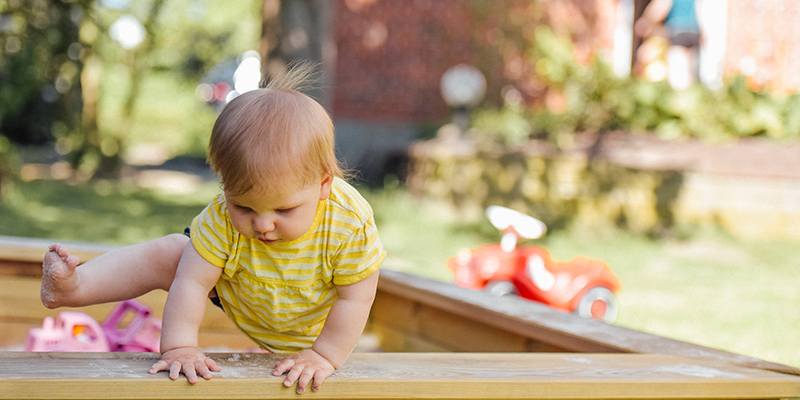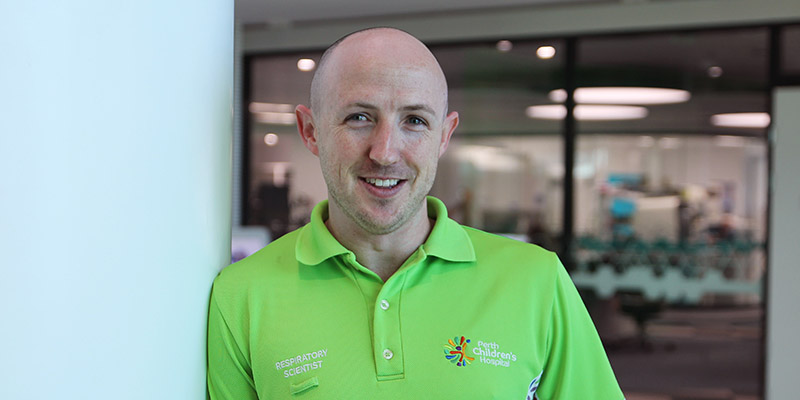Search

News & Events
Multi-million-dollar investment in child health to support vital researchFour The Kids Research Institute Australia researchers have received prestigious fellowships and four significant cohort studies led or co-led by The Kids have received key grants under two new funding programs supported by the State Government’s Future Health Research and Innovation (FHRI) Fund.

News & Events
Perron grants help give researchers wingsValuable support from the Stan Perron Charitable Foundation will enable The Kids Research Institute Australia researchers to commence projects on topics ranging from disability, mental health and lung disease to diabetes, Aboriginal leadership, and the development of child-focused pandemic policies.

News & Events
Pre-term kids get green light to exerciseParents of children born prematurely have expressed concerns about their child’s lung health when they exercise, with symptoms such as breathlessness.
Research
Innate epithelial and functional differences in airway epithelium of children with acute wheezeEarly childhood wheeze is a major risk factor for asthma. However, not all children who wheeze will develop the disease. The airway epithelium has been shown to be involved in asthma pathogenesis. Despite this, the airway epithelium of children with acute wheeze remains poorly characterized.
Research
Phage therapy could be key to conquering persistent bacterial lung infections in childrenPersistent bacterial lung infections in children lead to significant morbidity and mortality due to antibiotic resistance. In this paper, we describe how phage therapy has shown remarkable efficacy in preclinical and clinical studies, demonstrating significant therapeutic benefits through various administration routes.
Research
Profiling epithelial viral receptor expression in amniotic membrane and nasal epithelial cells at birthChildren with wheeze and asthma present with airway epithelial vulnerabilities, such as impaired responses to viral infection. It is postulated that the in utero environment may contribute to the development of airway epithelial vulnerabilities.
Research
Phage cocktail amikacin combination as a potential therapy for bacteremia associated with carbapenemase producing colistin resistant Klebsiella pneumoniaeThe increasing occurrence of hospital-associated infections, particularly bacteremia, caused by extensively drug-resistant (XDR) carbapenemase-producing colistin-resistant Klebsiella pneumoniae highlights a critical requirement to discover new therapeutic alternatives. Bacteriophages having host-specific bacteriolytic effects are promising alternatives for combating these pathogens.
Research
Environmental impact of inhaled medicines: A Thoracic Society of Australia and New Zealand position statementGlobally, more than 1.2 billion inhalers are purchased for asthma and chronic obstructive pulmonary disease (COPD) annually. In Australia and New Zealand, pressurized metered dose inhalers (pMDIs) are the leading delivery device prescribed and pMDI salbutamol can be purchased over the counter in Australia. These inhalers are a major contributor to healthcare related greenhouse gases.
Research
Respiratory Viral Testing Rate Patterns in Young Children Attending Tertiary Care Across Western Australia: A Population-Based Birth Cohort StudyBelaynew Christopher Peter Hannah Minda Huong Taye Blyth Richmond Moore Sarna Le MD, MPH, PhD MBBS (Hons) DCH FRACP FRCPA PhD MBBS MRCP(UK) FRACP OAM
Research
Epigenome-Wide Association Studies of Chronic Obstructive Pulmonary Disease and Lung Function: A Systematic ReviewChronic obstructive pulmonary disease (COPD) results from gene-environment interactions over the lifetime. These interactions are captured by epigenetic changes, such as DNA methylation.
